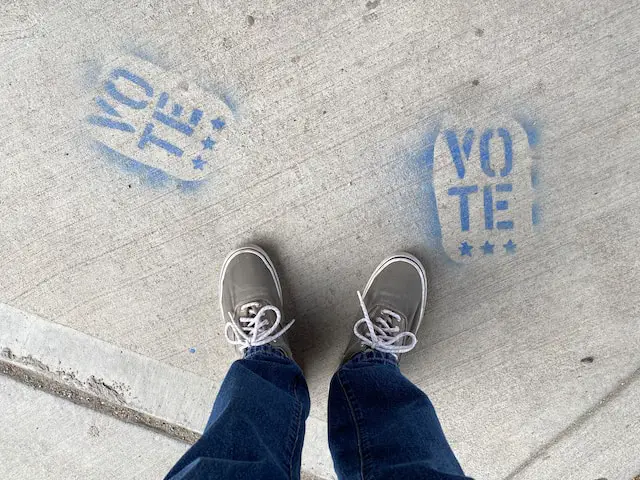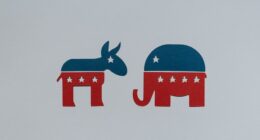While both meritocracy and democracy have their own advantages and disadvantages, they are fundamentally different in terms of how they function. Meritocracy places emphasis on individual ability and achievement, while democracy prioritizes collective decision-making through voting.
What is meritocracy ?
(Photo by storyse on Freepik)

Meritocracy is a term used to describe a system where individuals are rewarded based on their abilities and achievements. In a meritocratic society, advancement and success are determined by one’s skills, talents, and hard work rather than factors like social class or wealth.
The idea of meritocracy dates back to ancient China, where civil service exams were used to select officials based solely on their intellectual ability. Today, the concept has evolved into various forms of merit-based systems in education and employment.
In a meritocratic system, everyone has an equal opportunity to succeed regardless of their background or socioeconomic status. This means that someone from an underprivileged family who demonstrates exceptional skill can rise up the ranks just as easily as someone from a wealthy family with similar abilities.
Critics argue that true meritocracy is impossible because it assumes that everyone starts off on an equal playing field when in reality there are systemic biases that favor certain groups over others. Nonetheless, many still believe in the value of promoting individual achievement through merit-based systems.
What is democracy?
(Photo by Arnaud Jaegers on Unsplash )

Democracy, in its simplest form, is a type of government where the people have the power to choose their leaders and make decisions. It is built on the principles of equality and freedom for all citizens. In a democracy, every person’s voice matters equally regardless of their social status or wealth.
The concept of democracy originated from ancient Greece but has evolved over time into different forms such as direct democracy and representative democracy. Direct democracy involves individuals directly participating in decision-making while representative democracy entails electing representatives who will then make decisions on behalf of the people.
One fundamental aspect of any democratic system is regular elections held at fixed intervals, which enable citizens to exercise their right to vote and determine leadership. Additionally, free speech, freedom of press and assembly are crucial components that ensure transparency, accountability, and fairness within democratic societies.
Democratic governments also have independent judiciary systems that protect individual rights against violations by both citizens and those in power. The legislative arm provides checks-and-balances against executive excesses ensuring that laws passed reflect popular beliefs rather than self-interests.
Democracies provide an environment for diverse opinions to be heard while encouraging participation from everyone leading towards greater societal development with minimal marginalization.
Meritocracy Vs. Democracy – Key differences
Meritocracy and democracy are two distinct concepts that have been debated for a long time. While both systems aim to achieve equality, they differ in their approach. Meritocracy is the system where people are selected based on their abilities, talents, and merit. On the other hand, democracy is a system where all individuals have an equal say in decision-making.
The main difference between these two systems lies in how leaders are chosen. In a meritocracy, leaders are chosen based on their skills and capabilities rather than popular vote or birthright. This means that those who demonstrate the most potential will be promoted regardless of their background or social status.
In contrast, democracies rely heavily on popular vote to choose leaders. This implies that candidates who can appeal to the majority’s interests and values typically end up winning elections. While this may sound fair at first glance, it could lead to unqualified individuals being elected just because they know how to win votes.
Another critical difference between meritocracies and democracies is accountability. In a meritocratic system, performance determines whether an individual keeps his/her position or not – which ultimately holds them accountable for ensuring things run smoothly under them.
Democracies lack this kind of accountability since power changes hands frequently due to elections – leading many politicians taking short-sighted decisions solely aimed at securing votes while ignoring long-term goals.
To sum it up: Meritocracy rewards talent over popularity while Democracy prioritizes public opinion over ability – meaning whichever option you support depends mainly on your outlook towards governance ideals
What is the difference between a republic and a democracy?
A republic and a democracy may seem similar, but they have distinct differences. A republic is run by elected officials who represent the citizens of the country. In a democracy, the citizens themselves make decisions through voting.
The main difference between these two forms of government lies in their decision-making processes. In a republic, elected officials make decisions on behalf of the people they represent. These individuals are chosen through an election process and are held accountable for their actions while in office.
On the other hand, in a democracy, every citizen has an equal say in making decisions that affect them directly or indirectly. This form of government encourages active participation from all members of society to ensure that everyone’s opinions are heard and considered.
Another key distinction between these systems is how laws are made. In a republic, laws must be passed by elected officials after extensive discussion and debate within the legislative body. Conversely, laws created under democratic rule can come about from direct votes cast by citizens or through representatives democratically selected.
While both systems have their advantages and disadvantages based on context-specific requirements such as size & diversity; each serves as important options for governing bodies globally depending upon local needs to serve its community’s best interests with accountability & transparency being the core values upheld throughout its governance structure regardless of which system gets implemented at large scale applications .
What is the difference between a direct and representative democracy?
Direct democracy and representative democracy are two different forms of democratic governance. In a direct democracy, citizens directly vote on policies and laws through referendums or initiatives. This means that every citizen has an equal say in decision-making.
On the other hand, in a representative democracy, citizens elect representatives to make decisions on their behalf. These representatives form a government and are accountable to the people who voted for them.
The main difference between these two forms of democracies is that in direct democracy, all citizens have an equal say without any intermediary while in representative democracy there is an intermediary (representatives) which represents their views.
In a direct democracy, decision-making can be more time-consuming as it involves discussions among all members of society. However, it ensures that everyone’s voice is heard equally. Representative democracies tend to move faster but may not always represent the views of the minority groups who do not have representation or lobbies behind them.
Both types of democracies have their advantages and disadvantages; however, they allow individuals to participate actively in governmental processes either directly or indirectly by choosing those who will represent them
The Pros and Cons of Meritocracy
Meritocracy is a system of governance where individuals are selected based on their abilities, skills and talents. There are advantages and disadvantages to this form of government.
On the plus side, meritocracy promotes efficiency because those who hold positions have been chosen for their ability to perform well. This means that there is less chance for corruption or incompetence in high-level positions.
Additionally, meritocracies can be more diverse than other forms of government because people from all backgrounds have an opportunity to succeed based on their merits rather than social status or connections.
However, the downside of a meritocratic society is the risk of elitism and exclusion. If only those with certain abilities or skills are valued, others may be left behind regardless of their potential or hard work.
Moreover, it can create societal tension as some groups feel they are not being given equal opportunities. In addition, valuing one’s worth solely based on achievements runs counter to principles such as equality and compassion.
While meritocracy has its benefits in terms of efficiency and diversity but it also carries risks if not implemented carefully.
The Pros and Cons of Democracy
Democracy is a political system in which the power to govern lies with the people. This popular form of government has been adopted by many countries around the world, but it is not without its advantages and disadvantages.
One of the main benefits of democracy is that it promotes equality and freedom. All citizens have an equal say in how their country is run and can express their opinions through voting or participating in public debate. Furthermore, democratic governments are usually more transparent than other forms of government, which encourages accountability and reduces corruption.
However, there are also drawbacks to democracy. One potential issue is that decisions may be made based on popularity rather than merit or expertise. Additionally, democracies often rely on compromise between different groups or parties, which can lead to slow decision-making processes.
Another concern with democracy is that it can result in a “tyranny of the majority.” In some cases, minority groups may be marginalized if they do not have enough representation within government institutions or among voters.
While there are certainly pros and cons to democracy as a political system, many would argue that its benefits outweigh its shortcomings when implemented correctly.
Featured Image By – Phil Scroggs on Unsplash








